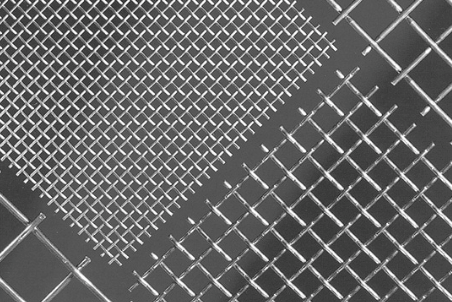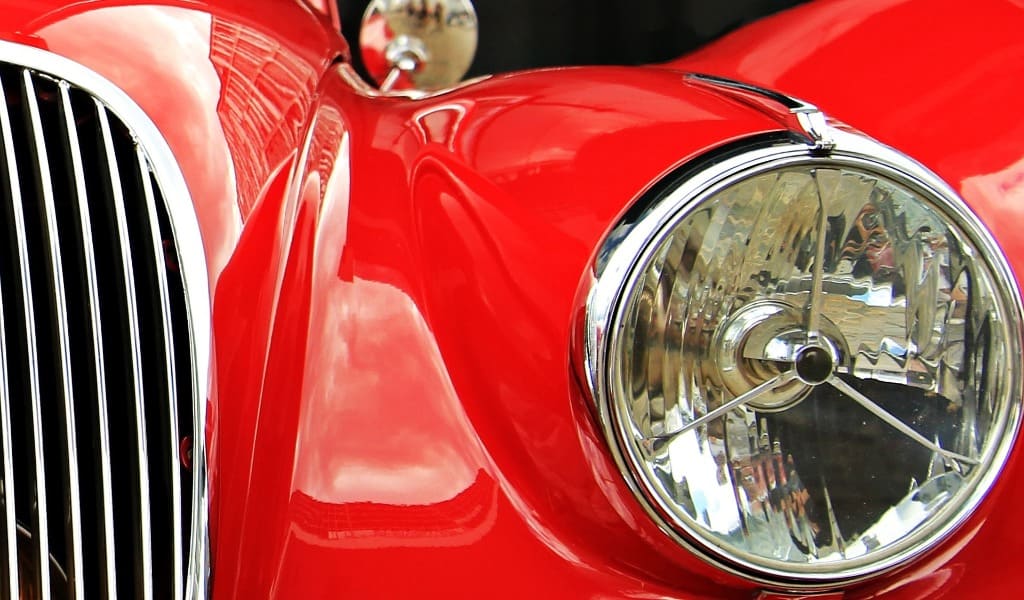Car Grille Design: The Benefits of Woven Wire Mesh
Cars are significant investments that we make, on average, every six years. Because of the financial impact behind purchasing a new car, automotive manufacturers incorporate several elements into a design to help protect our investments.
Car grilles, in particular, are often implemented to deliver both form and function. For this reason, automotive manufacturers must experiment with different materials, such as woven wire mesh, until they identify a material that complements the needs of the design.
Having said that, why should manufacturers consider woven wire mesh as a trusted material to fabricate the grilles they install into their car designs?
W.S. Tyler has manufactured and supplied industry-leading woven wire mesh products for over 150 years. It's our mission to dissect your exact needs so we can collaborate with your team and deliver a wire mesh solutions that develop your trust in the products you offer.
And with that, we wrote the following article to showcase the benefits that come with fabricating car grilles out of woven wire mesh. It will cover:
- The definition of a car grille
- The definition of woven wire mesh
- The beneficial characteristics woven wire mesh delivers when implemented as a car grille
- The alloys you can use to fabricate a woven wire mesh car grille
What Is a Car Grille?
A car grille is a ventilation screen media designed to allow adequate airflow throughout the engine bay. As a result, the operation temperature of the engine is managed and remains cool.
Additionally, they work to protect various automotive elements, such as the radiator and engine, from debris on the road. They do so while also providing enhanced visual effects.
What Is Woven Wire Mesh?
Woven wire mesh is best defined as a series of metallic wires that are interwoven to form a sturdy screen media. A weaving technique similar to how various fabrics are woven is used to create wire intersections that form precise, rigid pore openings.

Now, one of the most notable characteristics of woven wire mesh is its ability to be customized. It places parameters such as wire diameter, mesh count, opening size, alloy, weave pattern, etc., in the hands of the customer. You can also apply various post-weaving processes to ensure your mesh achieves peak performance.
These processes include calendering, welding, ultrasonic cleaning, deep drawing, and more.
What Are the Benefits of Using Woven Wire Mesh Grills?
When traveling along the road, especially at high speeds, loose gravel, trash, and other forms of debris are often present at some point during the commute. If this debris becomes airborne, it can collide with the engine, radiator, or other components, potentially causing costly damage.
For this reason, automotive manufacturers must ensure the materials they use to fabricate their car grilles can withstand high impacts.
As woven wire mesh is typically constructed from a 300 series stainless steel alloy, it delivers the durability to withstand the impact of debris. This, in turn, helps protect all the components in the engine bay for the lifespan of the car.
The stainless steel wires of woven wire mesh are also known for producing a lustrous shine. This is critical for manufacturers looking to create a luxurious presence.
And if the stainless steel grille is to become soiled, it can be cleaned with ease.
But possibly the most significant benefit of using woven wire mesh for car grilles is that it can offer all the functions listed above while remaining an open product. You can fine-tune the mesh count, opening size, and wire diameter of woven wire mesh to ensure it can provide adequate protection while allowing enough airflow.
What Wire Mesh Alloy Should I Use When Fabricating Car Grilles?
As stated previously, woven wire mesh is typically woven from stainless steel. This remains the case when fabricating car grilles.
This is due to the fact that stainless steel offers ideal durability, corrosion resistance, heat resistance, and awe-inspiring luster.
But as the conditions woven wire mesh will be subjected to vary depending on the make of the automobile, it is critical to know that a wide range of alloys can be used to fabricate woven wire mesh. When attempting to identify a suitable alloy, you should be mindful of the carbon content of any potential solutions.
The amount of carbon in an alloy will control its ability to withstand extreme conditions.
Get a Virtual Understanding of How Your Woven Wire Mesh Car Grille
Car grilles are automotive components designed to allow adequate airflow to keep engines cool while protecting the engine bay from loose road debris. Automotive manufacturers often turn to woven wire mesh as it provides a balance of heat resistance, durability, corrosion resistance, and luxurious radiance that most comparable solutions can achieve.
Now, as airflow affects both how cool the engine runs and the overall aerodynamics of the vehicle, it is critical that you understand how well air travels through the mesh specifications you are considering. While these calculations can be reflected on paper, having a visual representation may paint a better picture of what parameters you may or may not need to fine-tune.
With over 150 years of woven wire mesh experience, W.S. Tyer is here to help you resolve some of the frustrations you may have about the performance of your car grilles.
To learn more about how you can virtually determine how various mesh specifications will perform when implemented as a car grille, read the following article:
About Ronnie Brown
Ronnie is the Content Writer for W.S. Tyler and has four years of experience as a professional writer. He strives to expand his knowledge on all things particle analysis and woven wire mesh to leverage his exceptional writing and graphic design skills, creating a one-of-a-kind experience for customers.




